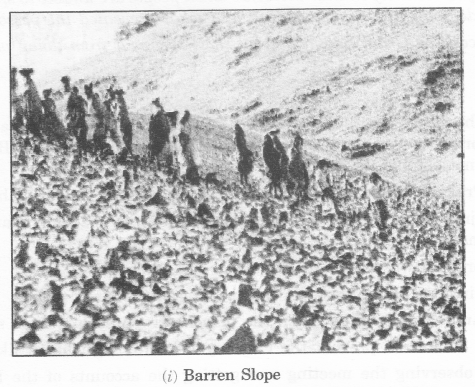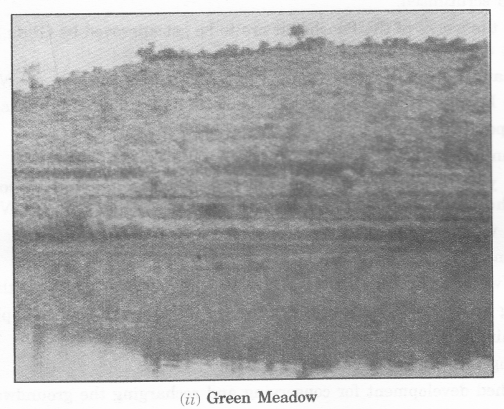GetStudySolution
Getstudysolution is an online educational platform that allows students to access quality educational services and study materials at no cost.
NCERT Solutions for class 6 Civics chapter 5 – Panchayati Raj
Back Exercise
1. What problem did the villagers in Hardas village face? What did they do to solve this problem?Answer
Problem faced by the villagers in Hardas village:
(i) Acute water shortage.
(ii) Hand pump water has gone well below the point up to which the ground has been drilled.
(iii) Women have to go to the Suru river which is 3 k.m. away to get water.
Solution done by them to solve this problem:
(i) Piping water from the river Suru and making an overhead tank in the village.
(ii) Deepen the handpumps and clean the wells for this season.
(iii) Finally, they came with the permanent solution of conserving water or the watershed development.
2. What, in your opinion, is the importance of the Gram Sabha? Do you think all members should attend Gram Sabha meetings? Why?
Answer
Importance of Gram Sabha:
(i) Gram Sabha elect the members of the Gram Panchayat.
(ii) It can question Gram Panchayat and keep watch on their work.
(iii) Local problems of the villagers can be discussed in the meeting.
(iv) They can recommend solutions to the problems.
Yes, I think all members should attend Gram Sabha meetings because they can raise the problems faced by them daily. They can also advise and make aware of the work done by the Gram Panchayat. It is the forum where they can discuss the welfare programmes of the village.
3. What is the link between a Gram Sabha and a Gram Panchayat?
Answer
Link between a Gram Sabha and a Gram Panchayat:
(i) Gram Sabha elect the members of the Gram Panchayat.
(ii) The Panch and the Gram Panchayat is answerable to the members of Gram Sabha.
(iii) Gram Sabha keeps an eye on the elected representatives of the Gram Panchayat.
4. Take an example of any one task done by a Panchayat in your area/nearby rural area and find out the following:
a. Why it was taken up.
b. Where the money came from.
c. Whether or not the work has been completed.
Answer
(a) Panchayat needs to construct building of middle school.
(b) Major part of the money came from the State Government and minor part of money came from the funds of Panchayat.
(c) The work has been completed on time.
5. What is the difference between a Gram Sabha and a Gram Panchayat?
Answer
| Gram Sabha | Gram Panchayat |
| Members of Gram Sabha are not elected. | Members of Gram Panchayat are elected representatives by the Gram Sabha. |
| All the adults who is above the age of 18 or have the right to vote are the members of Gram Sabha. | Ward members, Panchs and Panchayat president are the members of Gram Panchayat. |
| The members and the body are permanent. | The members and the body are elected after every 5 years. |
| They keep an eye on the works of Gram Panchayat. | They hear from the Gram Sabha and do the work. |
6. Read the following news item.
Nimone is a village on the Chauphula-Shirur Road. Like many others, this village has also been facing a severe water shortage for the last few months and villagers depend on tankers for all their needs. Bhagvan Mahadeo Lad (35) of this village was beaten with sticks, iron rods and axes by a group of seven men. The incident came to light w hen some villagers brought a badly injured Lad to hospital for treatment. In the FIR recorded by the police Lad said that he was attacked when he insisted that the water in the tanker must be emptied into the storage tanks constructed as part of the water supply scheme by Nimone Gram Panchayat so that there would be equal distribution of water. How ever, he alleged that the upper caste men were against this and told him that the tanker water was not meant for the lower castes.Adapted from Indian Express, May 1, 2004
a. Why was Bhagvan beaten?
b. Do you think that the above is a case of discrimination? Why?
Answer
(a) Bhagvan was beaten when he insisted that the water in the tanker must be emptied into the storage tanks constructed as part of the water supply scheme by Nimone Gram Panchayat so that there would be equal distribution of water.
(b) Yes, above is a case of discrimination because the distribution of water was not equal for all the people. The distribution of water from tanker was only served to the upper caste people not to the lower caste people. Moreover, it was not even emptied in tank constructed by the Panchayat.
7. Find out more about watershed development and how it benefits an area?
Answer
Watershed development is the conservation, recharging and judicious use of the water resources like, underground water, rivers etc. and lands within the watershed area.
Benefits of watershed development in an area:
(i) It makes the land fertile and supports the growth of trees, plants and cultivation.
(ii) Help in the preservation of water and its resources.
(iii) Prevents soil errosion.
In-Text Questions
Question 1.
What happens after people elect their representatives? (NCERT Page 43)
Answer:
- After people elect their representatives, the elected representatives of the party who have majority of representatives elect their leader.
- The leader is invited to form government.
Question 2.
How are decisions made? (NCERT Page 43)
Answer:
- The majority party puts the proposal about Em issue.
- The issue is discussed in the house.
- If the majority of representatives supports the issue/bill it is adopted Eind the decision is deemed as made.
Question 3.
How does this take place in rural areas? (NCERT Page 43)
Answer:
- In rural areas the GrEim Sabha meets in the form of a meeting.
- People participate in the Sabha.
- The elected representatives answer to the questions asked directly by the people.
Question 4.
It is a special day today. Everyone is rushing to get to the Gram Sabha! Do you know why? (NCERT Page 43)
Answer:
Yes we know,
- The Gram Sabha is holding its first meeting after the election of new Gram Panchayat.
- The people want to know what the new panchayat leaders have planned for the village.
Question 5.
Answer the following questions based on the text:
- Was there a problem with the BPL list that the Gram Sabha was finalising? What was this problem ?
- Why do you think Soorajmal kept quiet even though Saroj asked him to speak?
- Have you seen any similar incidents when people are unable to speak for themselves? Why do you think that happened and what prevented the person from speaking?
- How can the Gram Sabha prevent the Panchayat from doing what it likes? (NCERT Page 45)
Answer:
- Yes, there was a problem with the BPL list that the Gram Sabha was finalising. The problem was that Natwar and Biiju were listed in the BPL list while they were not eligible for this.
Om Prakash who was eligible for BPL list was not listed in this BPL list. - Soorajmal kept quiet even though Saroj asked him to speak because of the following reasons:
- Soorajmal was under the influence of Amirchand.
- Amirchand was present in the meeting of the Gram Sabha.
- Yes, Amirchand’s influence on the person prevented him from speaking.
- Gram Sabha can prevent the Panchayat from doing what it likes:
- By observing the meeting and getting the accounts of the Panchayat checked and scrutinised.
- All the works of the Panchayat are to be got approved by Gram Sabha. It would not approve wrong works done by the Panchayat.
Question 6.
What was the Hardas Gram Panchayat able to do? (NCERT Page 46)
Answer:
The Hardas Gram Panchayat was able to do the following tasks:
- To deepen two hand pumps.
- To clean one well.
Question 7.
Do you remember the options that were suggested to solve the water problem in the Gram Sabha of Hardas village? (NCERT Page 46)
Answer:
Yes, we remember.
The options suggested were:
- Piping water from Suru river which was 3 kilometres away from the village.
- Making an overhead tank in the village to increase the water supply.
- Deepening of the handpumps.
- Cleaning the village well for that season.
- Watershed development for conserving and recharging the groundwater resources.
Question 8.
Gram Panchayat members first discussed the suggestion to deepen two handpumps and clean one well, so that the village would not go without water. The Sarpanch (Panchayat President) suggested that since the Panchayat had received some money for maintenance of handpumps, this could be used for completing this work. The members agreed and the Secretary recorded their decision.
The members then went on to discuss the options for a long-term solution. They were sure that the Gram Sabha members would ask questions at the next mieting. Some Panchs asked whether the watershed programme would make a substantial difference to the water level. A lot of discussion followed. In the end it was decided that the Gram Panchayat would approach the Block Development Officer and get more information on the scheme.


(i) What decisions were taken by the Gram Panchayat?
(ii) Do you think it was necessary for them to take these decisions? Why?
(iii) From the above description, write down one question that people could if ask of the Panchayat in the next Gram Sabha meeting. (NCERT Pages 46-47)
Answer:
(i) The following decisions were taken by the Gram Panchayat:
- To deepen two handpumps.
- To clean one village well.
- To approach the Block Development Officer (BDO) for information (detailed) about the scheme of watershed development.
(ii) Yes, we think it was necessary for them to take these decisions for the welfare of the village people as drinking water shortage was the most important problem of the entire village.
(iii) In the next meeting members would ask what information had been obtained from the BDO regarding watershed development scheme.
Question 9.
Ask your teacher to invite any of the elected persons such as the Panch, Sarpanch (Panchayat President) or member of the Janpad or Zila Panchayat and interview them on their work and the projects undertaken by them. (NCERT Page 48)
Answer:
Do this exercise with the help of your subject teacher.